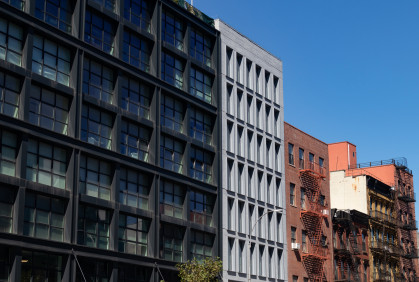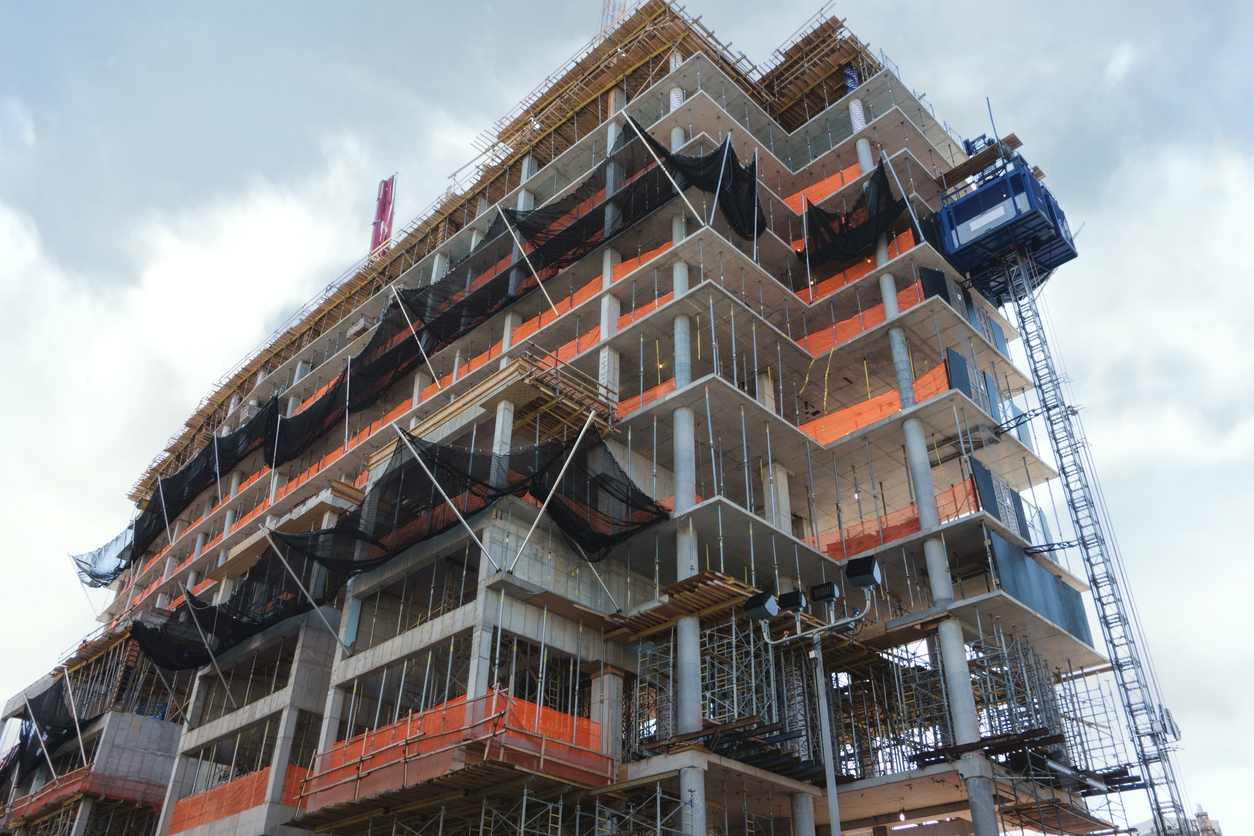How does a condo board sue the sponsor for construction defects in NYC?
- Most claims are based on breach of contract, which has a six-year statute of limitation
- The offering plan will also have requirements for when and how to notify the sponsor

The first thing a new condo board should do is hire an independent engineer to do a full survey of the building to show proof of the defects and discover any others.
iStock
You are right to try and hold the sponsor responsible. Ideally, the developer should address the problems as soon as they are discovered. But what if they don't? Your board's best (and perhaps only) option is to bring a lawsuit—and time is of the essence because the law imposes limits on how long you have to file a suit.
This is a well-paved path in NYC, with plenty of luxury buildings in an uproar over leaky ceilings, broken elevators, and a host of other complaints.
Mark B. Levine, principal of EBMG, a boutique NYC property management firm with over 25 years' experience servicing co-op, condo, and rental buildings of all sizes, backs up that idea. "Many of the newer buildings our firm has taken over the management of after the developer/sponsor has left have had preventative maintenance, structural, water infiltration, and administrative issues —missing documents, warrantees, as-built drawings, building plans, etc.," he says.
His advice to an incoming unit-owner board is to consider the potential conflict of interest that could lead to these problems. "A developer-led board will try and lower or avoid costs that will affect them greatly over the next few months or years because they will be selling their units and getting out of the building," he says. For example, sponsors are likely to not spend money on required repairs and instead may just patch them up prior to leaving.
In contrast, when you have a unit-owner-led board with a vested long-term interest in the building, "there is no conflict or hesitancy other than financial planning to make proper repairs that will last a long time," he adds.
So if your board is faced with paying for such repairs, you'll need to consult with an attorney who will walk you through the steps to a successful resolution.
What documents are necessary to back up the claim?
First, you want to build a paper trail and go on a fact-finding mission.
"It would behoove the incoming board/management company to take stock of all documents that are in possession and figure out those that are needed to properly operate the building," Levine says. The developers should have these documents in digital form and be able to share them, but if they haven't done so, you'll have to reach out to a variety of sources to cobble them together, including the architects, engineers, attorneys, and the Department of Buildings, among others.
What's more, he says local laws will govern what each building needs to inspect, file, and certify based on height and size, so the sooner a new board understands the past filings and future exposure on these, the better.
Of particular importance is the offering plan and purchase agreement. "These documents are very important as they set forth the terms of the sale, and contain the representations and warranties of the sponsor," says Charles R. Pierce, a partner at Rosenberg & Estis, which specializes in real estate law.
How can you prove that the defects exist?
Besides relying on existing reports from the sponsor, Levine advises all new boards to hire an engineer to take a survey of all common areas, any damage to the interior of the apartments, and any checklist items for the developer to handle.
Pierce says when unit owners first take control of the board, they will often retain an independent engineering firm to evaluate the construction of the building and compare it to the drawings, specifications, and other representations in the condo documents.
Julie F. Schechter, a partner in the finance and real estate practice at NYC-based law firm Armstrong Teasdale, agrees. "We recommend that buildings hire an engineer to perform a full building physical conditions report because there may be latent defects in addition to the patent defects that the board may already be aware of."
Know that there are specific statute of limitations on these types of projects, "so understanding what the issues are right away is important to fight a future fight to make the building whole," he says.
How long is the statute of limitations for defects?
Pierce says the statute of limitations vary depending on the claims that are being made, adding that condo boards can bring claims against the sponsor for defects that occur in more than one unit or in common areas. (Issues in only one unit would need to be handled by the individual owner.)
According to Schechter, "Most, although not all, defect claims are brought as breach of contract claims because the sponsor breached a term of the offering plan, which is incorporated into the contract of sale when the buyer purchased the unit." The statute of limitations on a breach of contract claim is six years and starts to run on the date of the first sale.
Pierce says other potential claims may be based on warranties, fraud, or violations of the Martin Act, each of which has a defined statute of limitation. Your attorney will be able to guide you on the right claim to base the suit on.
Whatever the basis of the lawsuit, he may recommend that the board serve and file a "summons with notice" to stop the running of the statute of limitations before or at the same time that they engage the sponsor in discussions over the defects. This type of summons "is a way to quickly and inexpensively commence a lawsuit, as opposed to a 'summons and complaint' where a complaint in these types of cases may be very long and comprehensive," he explains.
What if the defects are discovered only after that time period?
You may be out of luck. "Claims are time barred if they are discovered after the statute of limitation has run," Schechter says.
Hence the importance of doing your due diligence immediately after the independent board takes control.
"Again, depending on when the defects are noticed and the type of defects, an attorney can advise the board whether there may be a statute of limitations issue and how best to try and work around them," Pierce says.
Are there preliminary steps a board must take before initiating a lawsuit?
The offering plan is the controlling document, so boards are advised to check the terms right away.
"If there is a requirement that notice of defects be given to the sponsor, it is important to note when the notice has to be given by and how it must be given," Schechter says, noting that a failure to comply will not necessarily preclude a board from filing a lawsuit but should nevertheless be followed.
Giving notice of defects serves another purpose. "It's always best to try to first work with the sponsor to correct any defects as the sponsor can usually correct the condition more cost effectively [than the board]," Pierce says.
What experts are needed to substantiate the claim?
Pierce says the key experts are the engineering firms hired by the board to do the survey, as well as the engineers who worked on the construction. "However, I have used all types of experts, from structural engineers and mechanical engineers to architects and curtain wall or building envelope consultants."
How long does a case like this take?
Schechter says they try to settle most construction defect claims because the ones that get litigated can take years to complete and be very expensive.
What makes these cases so lengthy—and costly? "Generally, the condo sues the sponsor and sometimes the individual sponsor member, and the sponsors in turn implead [bring into the lawsuit] the contractor, possibly the design professionals, and ultimately the trade [sub]contractors," Pierce says. So there tend to be lots of parties, each with its own attorney.
Once all the parties are impleaded (and assuming the defendants' motions to dismiss are denied), your attorney will need to conduct a fairly long, drawn-out discovery process before it ever gets put on the court calendar.
"Oftentimes, the contractor’s or trade contractors’ insurance companies may deny coverage or defend under a reservation of rights, making resolution even more difficult," Pierce says.
Meanwhile, Pierce (who has handled construction defects for condos, sponsors, and trade contractors) says the cases can often be settled before a mediator who is experienced in large cases with numerous parties.
"When representing the condo, I’m always looking to see how the case can best be resolved early on. If the sponsor is reputable, or is doing more projects, I will try to negotiate a resolution, including having them perform the corrective work pursuant to plans approved by the condo’s expert and under the expert’s observation, all at the cost of the sponsor."
He will also try get the sponsor to pay all or a portion of the legal fees.
Articles you may also like...
What’s the easiest way for an independent condo board to take control away from a developer? While a sponsor controls the board, there's a potential for abuses of power, such as controlling funds they shouldn't or ignoring faulty construction. Here's what you can do to secure the board's independence.
How much does it cost to sue a developer for construction defects? Is it worth it? [sponsored] If there are major problems like a leaking roof, defective windows or buckled flooring on a brand new building, then suing an unresponsive sponsor might be your only option.
I bought in a new condo development with lots of construction defects. Do I need to sue? Before you pursue legal action, it's worth speaking to fellow owners to see if you can address these defects as a group with the building developer, our experts say.
Sign Up for our Boards & Buildings Newsletter (Coming Soon!)
Thank you for your interest in our newsletter. You have been successfully added to our mailing list and will receive it when it becomes available.

















